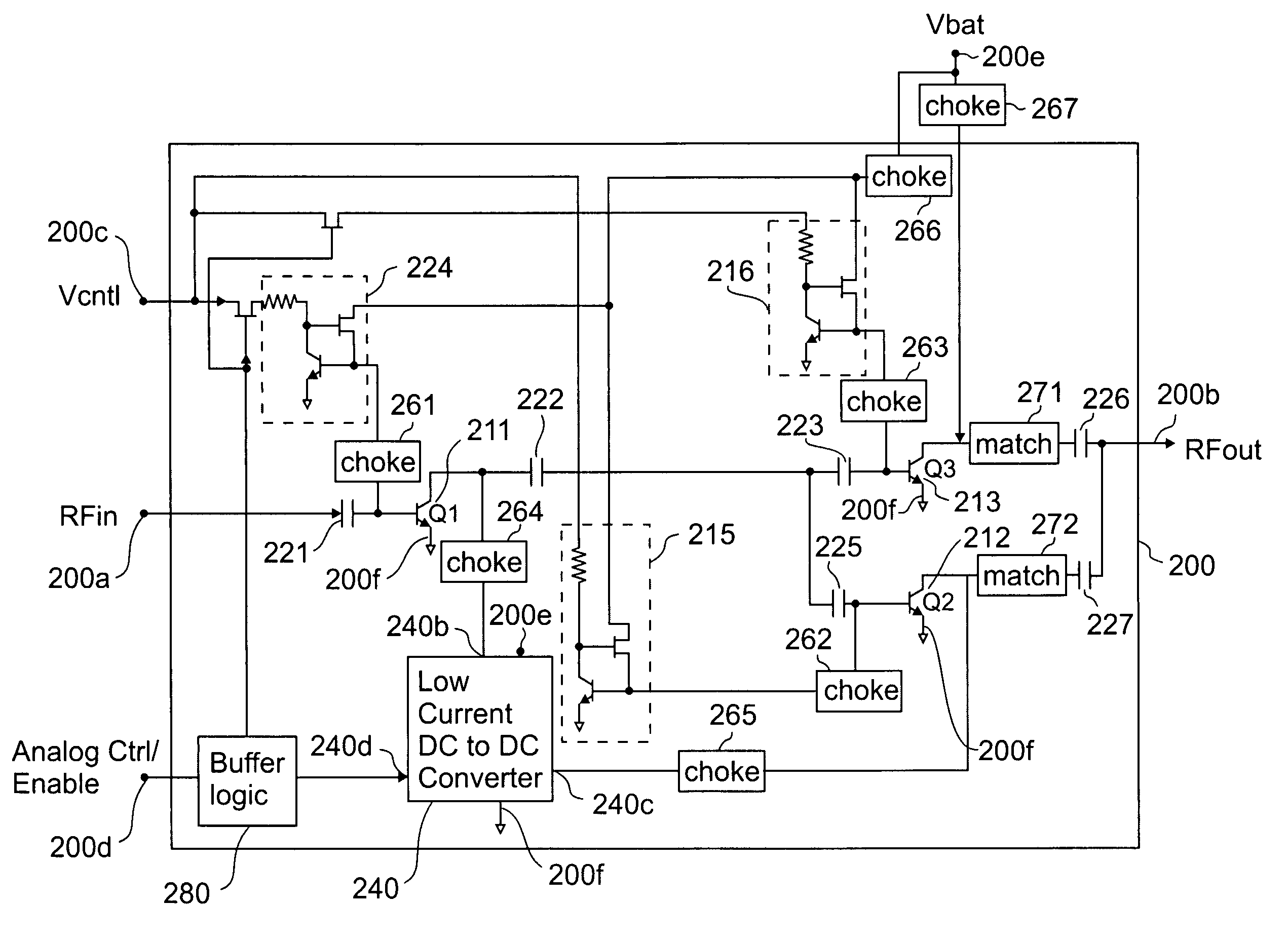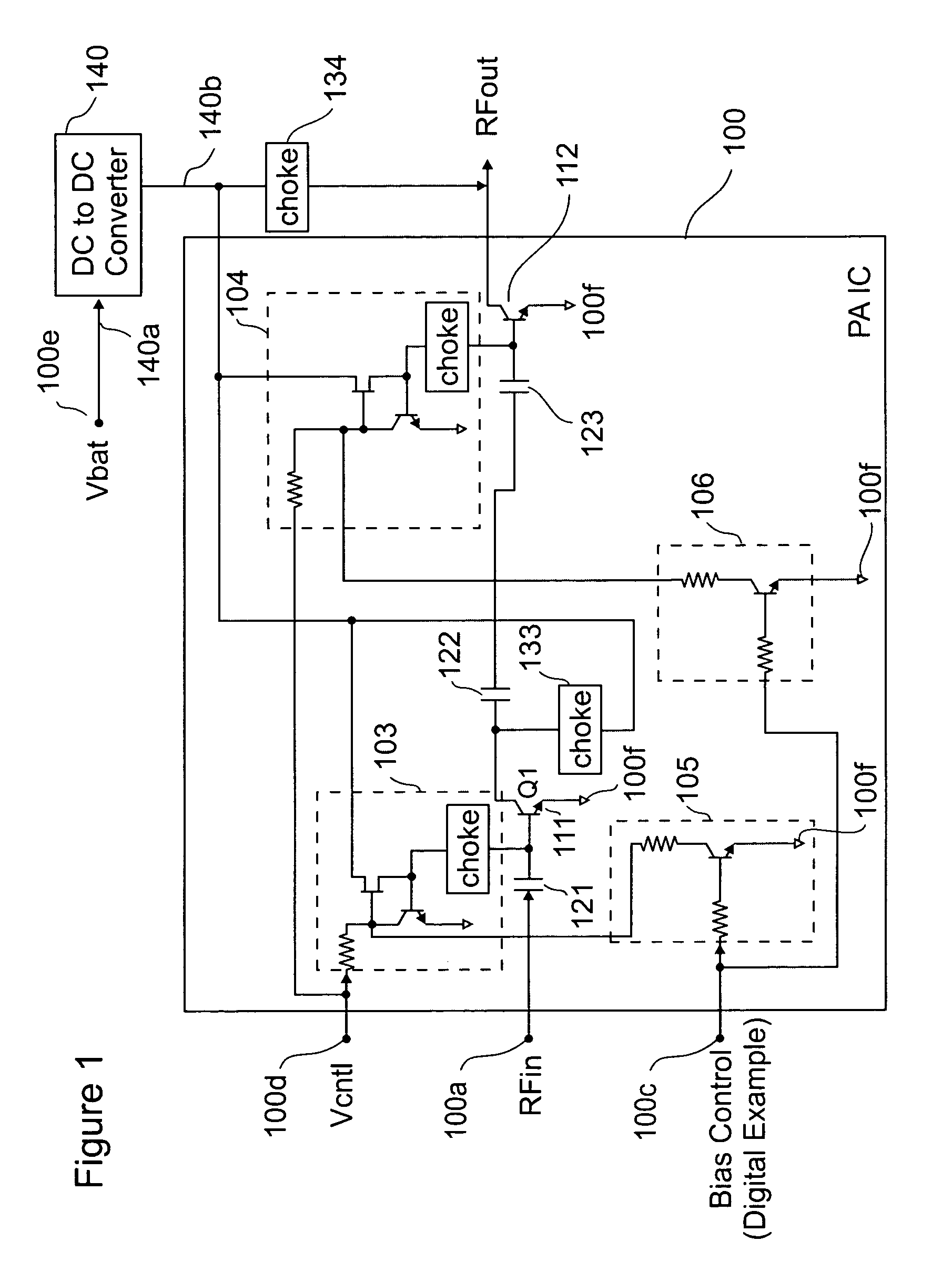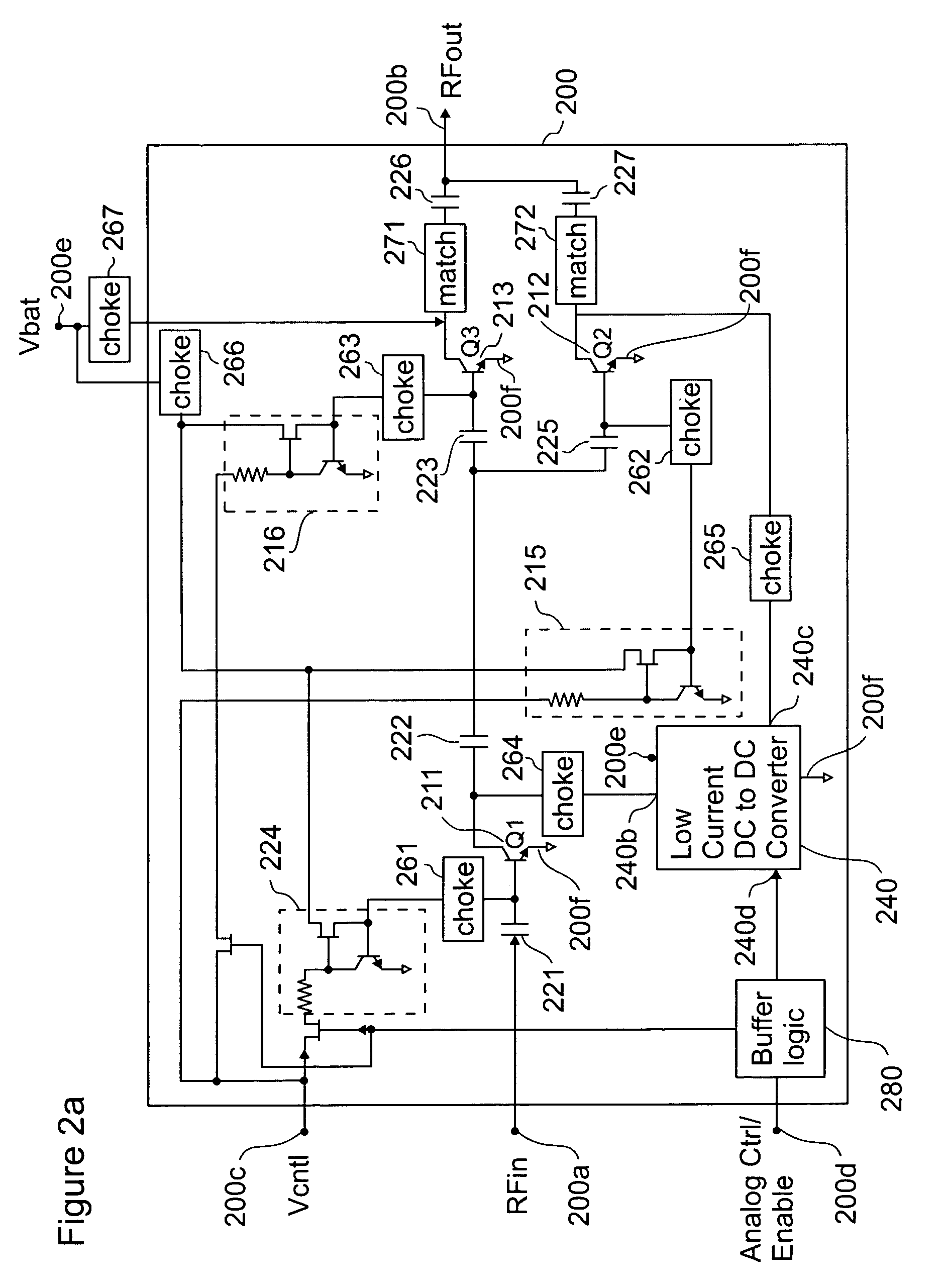Power amplifier (PA) efficiency with low current DC to DC converter
a technology of power amplifier and converter, which is applied in the direction of amplifiers, amplifiers with semiconductor devices only, amplifiers with semiconductor devices, etc., can solve the problems of high cost and size, the size and conversion efficiency of this regulator type is more problematic, and the complexity of the power supply
- Summary
- Abstract
- Description
- Claims
- Application Information
AI Technical Summary
Benefits of technology
Problems solved by technology
Method used
Image
Examples
first embodiment
[0023]FIG. 2a illustrates a two-stage power amplifier integrated circuit (PAIC) 200, which includes a low current DC to DC converter 240, which is integrated as part of the PAIC 200, and analog bias control, in accordance with the invention. An input stage of the two-stage amplifier circuit is comprised of a first transistor (Q1) 211. An output amplification stage of the two-stage, or multi-stage, amplifier having an output stage amplification is comprised of a first amplifying portion having a first amplification and including a third transistor (Q3) 213 and a second amplifying portion having a second amplification and including a second transistor Q2212. The first amplification and the second amplification together form the output stage amplification.
[0024]Transistors Q1211 and Q3213 are capacitively coupled to each other using capacitors 222 and 223 disposed in series between the collector terminal of Q1211 and the base terminal of Q3213. The base terminal of transistor Q2212 is ...
second embodiment
[0035]FIG. 3 illustrates a two-stage power amplifier integrated circuit (PAIC) 300, which includes a low current DC-to-DC converter 340 and an automatic bias control circuit 350, in accordance with the invention. An input stage of the two-stage amplifier circuit is comprised of a first transistor Q1311. An output amplification stage of the PAIC 300 having an output stage amplification is comprised of a first amplifying portion having a first amplification and including a third transistor Q3313 and a second amplifying portion having a second amplification and including a second transistor Q2312. The first amplification and the second amplification together form the output stage amplification.
[0036]A RF input port 300a of the PAIC 300 is coupled using a capacitor to a first RF power detector 351, which is further capacitively coupled using capacitor 321 to the base terminal of transistor Q1311. The collector terminal of transistor Q1311 is coupled to a coupling capacitor 322, which is...
PUM
 Login to View More
Login to View More Abstract
Description
Claims
Application Information
 Login to View More
Login to View More - R&D
- Intellectual Property
- Life Sciences
- Materials
- Tech Scout
- Unparalleled Data Quality
- Higher Quality Content
- 60% Fewer Hallucinations
Browse by: Latest US Patents, China's latest patents, Technical Efficacy Thesaurus, Application Domain, Technology Topic, Popular Technical Reports.
© 2025 PatSnap. All rights reserved.Legal|Privacy policy|Modern Slavery Act Transparency Statement|Sitemap|About US| Contact US: help@patsnap.com



